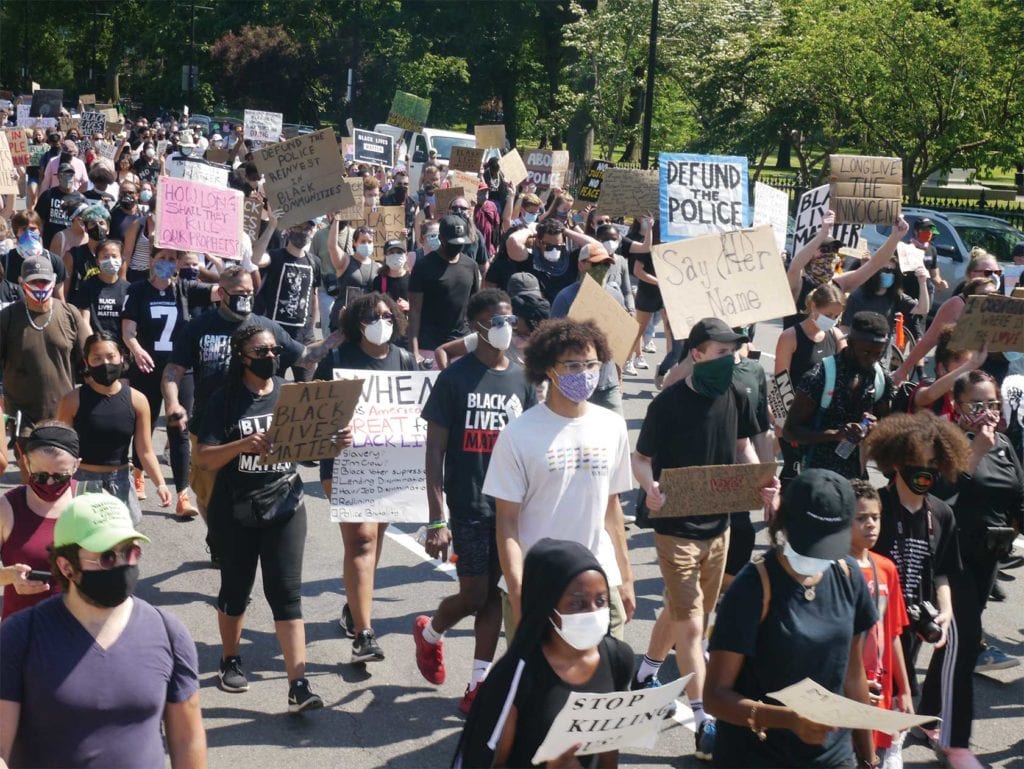Boston police data show disparities in stops
Black people, and specifically young black men, are most likely to be stopped

Attorneys with the ACLU of Massachusetts have been calling for the Boston Police Department to release data on pedestrian stops since the department last did so in 2016. Today, the data for 2019 show that little changed over three years: Black people, and specifically young black men, are most likely to be stopped.
The Field Investigation Observation (FIO) data is a collection of stops initiated when police believe they have probable cause to make an arrest, reasonable suspicion that a person is engaging in a crime, or when they believe a person has a known criminal history. Seventy percent of those stopped in 2019 were black, as was the case in 2016.
In data collected for all of 2019, the number for individual black men under age 30 stopped by police is about double the number of white people stopped overall.
This information separates pedestrians by races black, white, Asian, Native American or unknown, with a separate column noting Hispanic origin. Considered important for transparency in the government, the lack of recent data prompted District 4 City Councilor Andrea Campbell to issue a subpoena in March 2020 demanding the information be turned over. Now the FIO data from 2017 to 2019 is publicly available for the first time since the BPD promised to release it yearly in 2015. The demand for transparent and effective policing data is not new; the ACLU of Massachusetts sued the BPD over its gang database in 2018.
Armani Thomas, a student at Bunker Hill Community College, has lived in Boston all his life. He has never been stopped by the police, but all the men in his family have. “All the men in my immediate family have police records … my father served time when I was young,” he said. “It became part of my daily routine to not get arrested, despite the fact that I was doing nothing arrest-able.”
Thomas attended a youth protest June 10 advocating to defund the BPD, but he says it’s not about punishing the police for doing their job.
“The moment that police are involved, whatever they’re handling seems like a crime. So, if you have all these leads in lower income, black and brown communities, of course, there’s going to be higher reports of crime,” he said.
As the City Council gets ready to vote on a budget that may reallocate $12 million from the BPD’s overtime budget, part of Mayor Martin Walsh’s declaration of racism as a public health emergency, these numbers are now part of the discussion among Boston youth and their community leaders.
“I understand [the mayor is] worried about the risk,” says Thomas. “But on the flip side, I want him to realize that taking police officers out of schools isn’t necessarily to allow danger to run rampant.”
In an interview with WGBH Friday, Walsh said he was “shocked” by the percentage of those stopped by the police who were black.
“It’s undeniable that we have major work to do,” he said.






